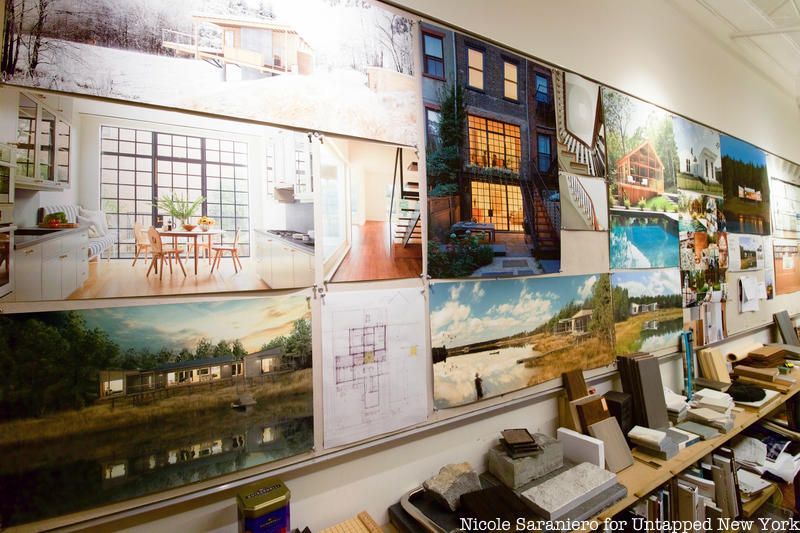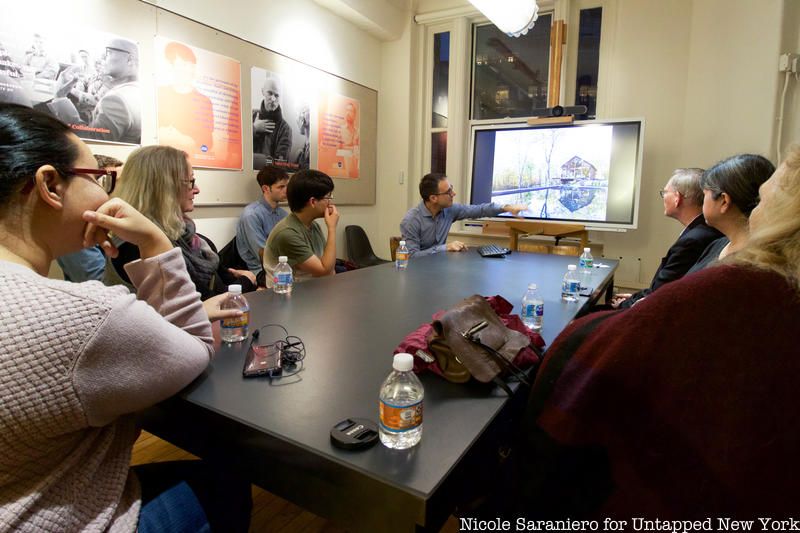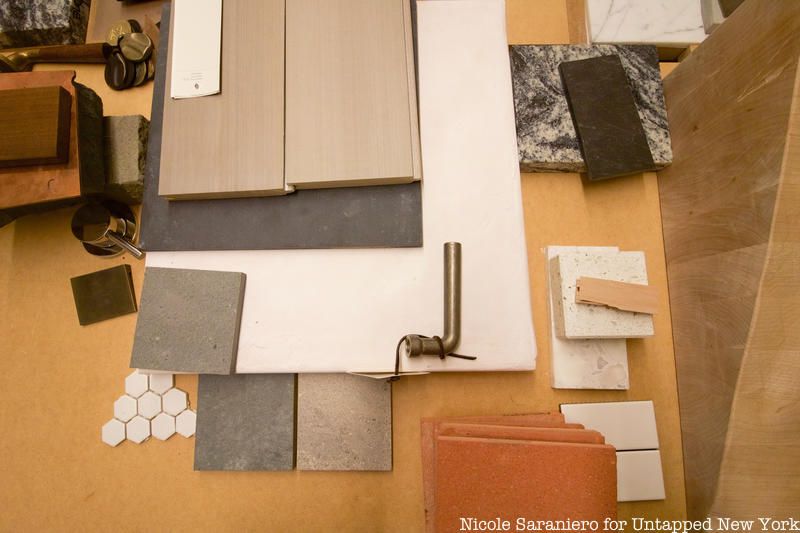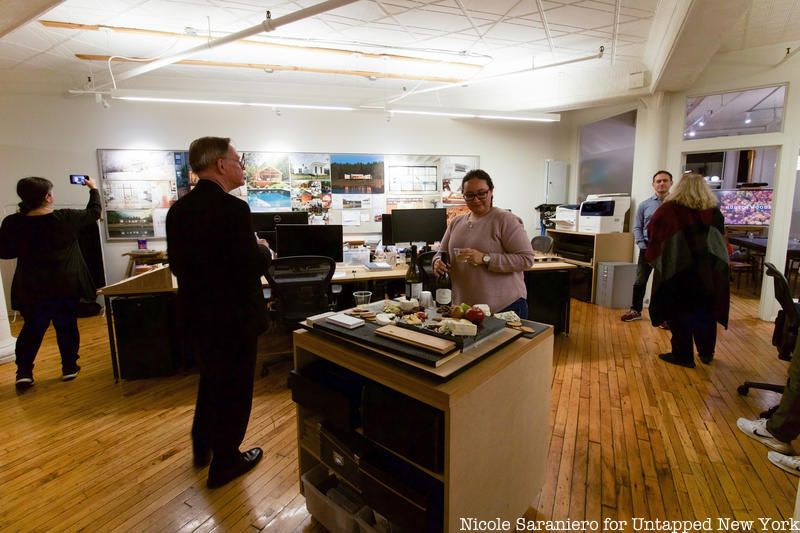Last-Minute NYC Holiday Gift Guide 🎁
We’ve created a holiday gift guide with presents for the intrepid New Yorker that should arrive just in time—


The team at Lang Architecture is creating a new approach to designing, and developing, buildings. Through our Untapped New York Insiders program, our members get to go inside the studios of New York City’s leading architecture firms to learn about the process behind their designs. We recently got to sit down with Lang Architecture’s founding principal, Drew Lang, to discuss the firm’s guiding principles, explore the workspace, and learn about one of their biggest projects yet, Hudson Woods.
Established in 2003, Lang Architecture’s guiding principle is “connected design – holistically uniting place, purpose and experience to elevate daily life.” The studio walls are line with imagery of projects in various states of progress, from floor-plans and sketches to striking photographs of the finished product. Desks are covered with material samples of wood, stone and hardware and models of current projects in design. The busy team welcomed Insiders into their workspace and explained what they were working on. Lang Architecture designs many private residences, and also commercial and public spaces.

Lang’s mission of connected-design is exemplified in the firm’s most ambitious project to date, Hudson Woods, a development of twenty-six sustainably designed homes in the forest of New York’s Catskills region. Drew Lang wanted to try something new with this endeavor, taking on both developing and designing to make his firm a one-stop shop. Both components of the project adhered to the firm’s guiding principles. The development of the land and the design of the structures enhance the existing natural environment. The land, which stretches over 131 forested acres, was selectively cleared to carve out a spot for each home where it would have pleasing views and a feeling of privacy.

Hudson Woods, Courtesy of Lang Architecture
Many of the materials and furnishings, and even the labor for the project, were sourced from the local area or nearby companies that fit into the project’s vision of sustainability and quality craftsmanship. On our visit, Lang told us about the copious amounts of bluestone that were found right on the property. It was mined and used to pave two miles of road that snake through the development. The quarry became a pond. Oak and cherry wood was acquired from Allegheny Mountain Hardwood, a family business based in Pennsylvania that utilizes all parts of the tree in production. Inside the homes, wood burning stoves from Wittus-Fire, a Westchester based company, warm up the living rooms, furniture crafted by a 7th generation Upstater in Germantown appears in bedrooms, and landscaping design by a Rosendale firm enhances the already beautiful natural scenery.

The design of the homes was inspired by local agricultural buildings. They are reinterpreted farmhouses and barns that look like they belong among the natural scenery. Utilities like electrical wires and cable are buried underground, further minimizing the visual impediment of the forest setting. Lang says this project, which took three years to complete, proves that “well designed, environmentally friendly developments can be economically successful.” The firm is currently in the process of building a similar development in Windham, New York, a popular skiing destination. While the idea of bringing the outside in works well in the country, Lang wants to bring that idea into the city. Citing The Ford Foundation as a great example of this, he explained how it is possible and desirable to combine the natural environment with the built one, and to do so with great design.

You can see the work of Lang Architecture all over New York City. The firm is responsible for the redesign many private residences in Manhattan and Brooklyn as well as commercial projects such as the renovation of Minis Shabu Shabu restaurant in Flushing, Queens and the Parc Hotel near La Guardia Airport. The team has also completed projects in other places throughout United States (Lang is from New Orleans), including the Splinter Creek in Mississippi, a 25 home conservation development situated on 600 acres of rolling pine forest and spring fed lakes. The firm has also started an exciting venture called Brick & Wonder. Brick & Wonder is a curated community of Real Estate and Design Professionals. Lang was inspired to create this community because he realized that how much projects can be enhanced with great collaborators.

If you want to join us on our next behind-the-design tour, become an Untapped New York Insider today! Insiders gain free access to behind-the-scenes tours and special events all year long. Our next studio tour, presented in partnership with our friends at 6sqft, will be at the firm of Woods Bagot. Learn more here!
Next, check out Loved and Hated: 8 Controversial Works of NYC Architecture
Subscribe to our newsletter